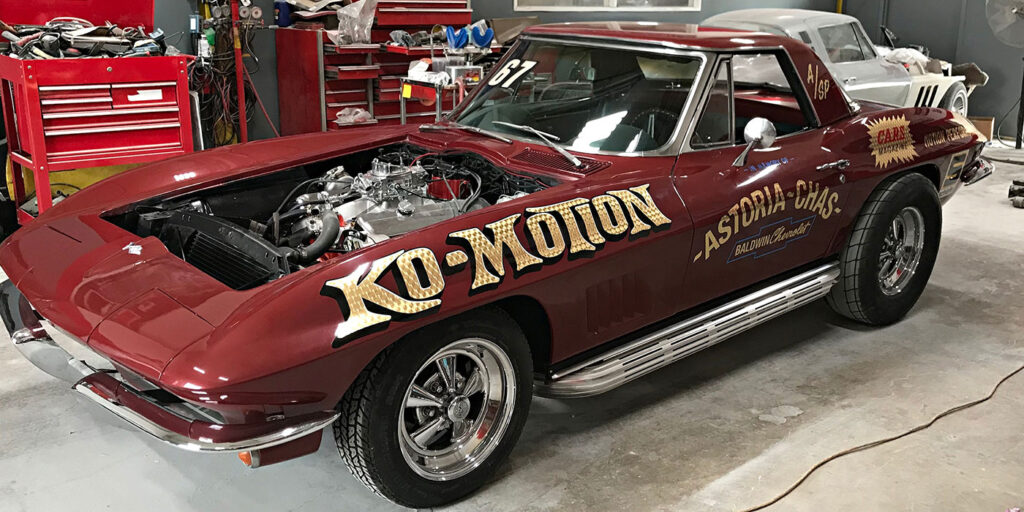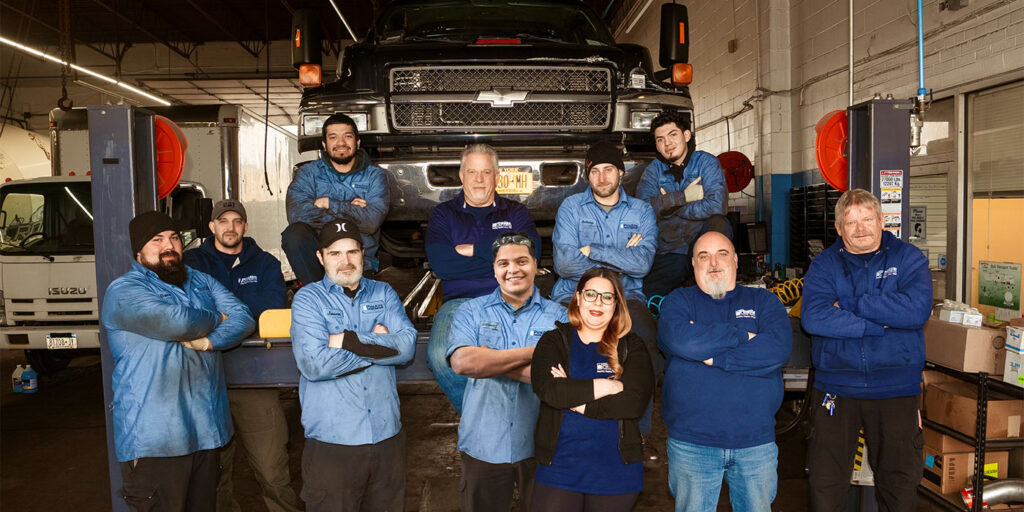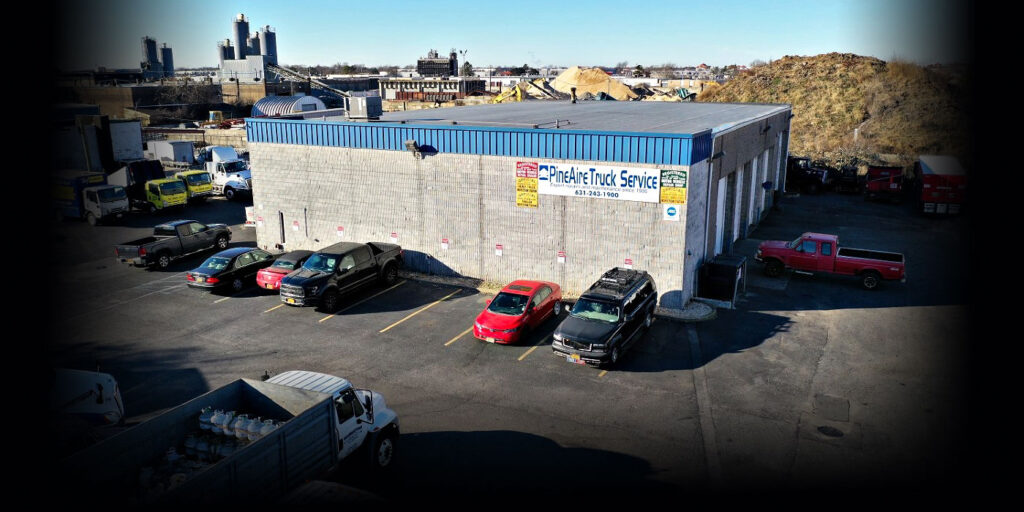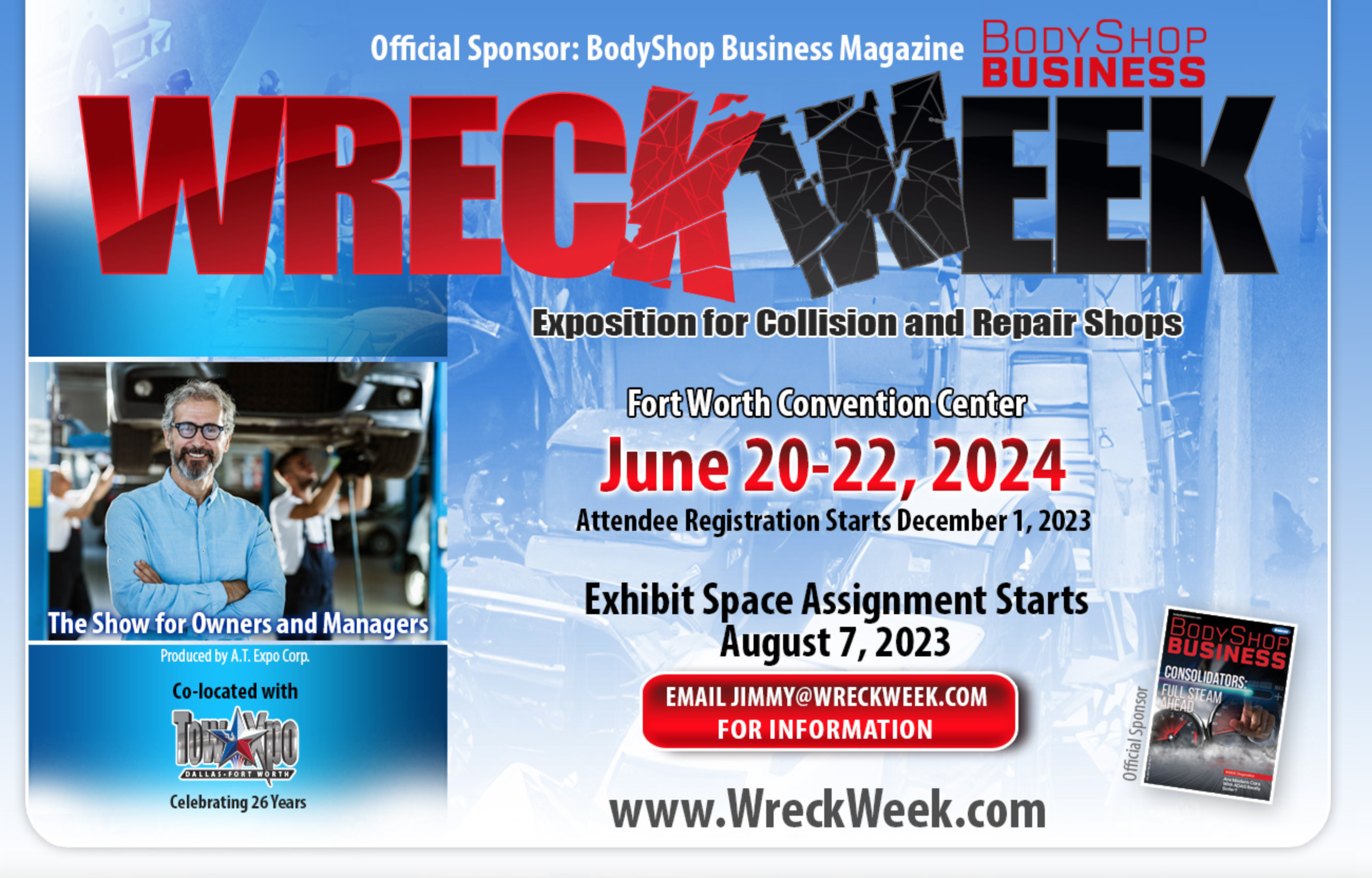Look up the term “leadership,” and words like authority, command, control and power come up. Strong, determined words, perfect for being in command of today’s challenging business realities, right?
In reality, if business owners think of leadership skills strictly in those terms, chances are they will fail — both for themselves and their team.
Instead, look up the term “help” and you’ll see benefit, lift, advice and guidance. According to Dave Bloom, owner of Pine Aire Truck Service of Bay Shore, N.Y., and partner Dream Car Restorations of Hicksville, N.Y., this set of words is much closer to the mark.
In fact, in another world, one might just see Bloom’s own face next to that dictionary definition of leadership. But he says it hasn’t always been like that.
Bloom has been in the industry more than 35 years and recalls many ups and downs before developing his leadership skills which have led to the success he enjoys today. You certainly wouldn’t have predicted his success if you based it on the first shop he owned, he admits. In short, he says, “It was a disaster.”
So, how did Bloom regroup and develop a leadership philosophy that has propelled his two businesses to a combined $4 million plus in annual revenue?
It’s an instructive lesson to other business owners, he says, one that starts a long time ago.
Never a Leader
“As a kid, I was never the ‘leader’,” he says. “I was always a kid who wanted to be liked and included.
“I was actually pretty quiet and shy as a young person. I had a good sense of humor and a gentle personality that made it easy for me to fit in. I have two brothers and a sister; we are a tight family who ate dinner together every evening. Dinner included lively conversations and almost always back and forth humor between us! Thinking back, that was where I developed my sense of humor and also my comic timing — you had to be quick and spontaneous at the dinner table or else you would be shut out.”
Bloom says this desire to be liked and included carried over to the beginning of his career.
“When I opened Pine Aire, I was only 25 years old,” he says “As an owner, I still put a lot of intention on wanting to be liked along with also wanting to be very significant in the success of the company.”

He says he believed then, and still does today, in leading by example and discusses this with every employee on a consistent basis. This doesn’t, however, mean just being “one of the guys.”
“As a young shop owner, I tried to do everything I could to show the people working with me that I was one of them. This approach might work well for a manager, but as an owner it stunted the growth of our company,” Bloom says. “I felt the need to regularly prove that I was a top producer in the shop in addition to being the owner. Working on the trucks, training to work on the trucks, writing invoices, selling jobs, handling financial issues, hiring … I wasn’t running the business, the business was running me, and not paying me well! I was overwhelmed.”
Bloom says after about 20 years, he made the decision to concentrate on being a business owner and working on the business, taking a step away from the minute-to-minute activities.
There was never an “aha!” moment that convinced him to change, he says. “It was a progression over a long period of time. I am always trying to make myself better, and through reading and conversations with other business owners and, later, a DRIVE consultant, I realized that I could get things done in a much calmer, more productive manner,” Bloom says. “This is when I would say that I was starting to become a solid leader.”
Confidence is Key
To be a strong leader, you need to have the confidence to guide both your business and crew to be better than you, in many cases. After all, you want that new tech to be a better one than you were 10 years ago. You need them to be up on the latest technology and be open to learn more. You need them to be faster and more productive than you ever were on your best day.
According to Bloom, the bottom line is this: good leaders grow in their own capabilities and confidence, but also encourage their employees to grow and become everything they want to become.
Obviously, it takes time to recognize the importance of growing as a leader. How do you do it? What does it entail and how do you get started? It may help to think about where you started, where you are now and where you want to go with the goal of being a strong, respected leader.
Think about yourself back in school. Did you have a bravado that possibly covered up insecurities? If you did, you sure didn’t want to let on that you weren’t as confident as you were pretending to be.
Being confident in what you know — and being comfortable with what you don’t know (and want to learn) — is something that comes from … ahem … age.
What Kind of Leader are You?
Today, what kind of leader are you? Have you grown since opening your business? It’s important to evolve, both the business and you as a person. And that includes your leadership skills.
Depending on how long you’ve been in business, your core skills as an owner are likely well established. Your confidence has undoubtedly grown since opening your shop. And your communication skills have grown along with the ability to manage your direct reports in a confident manner.
Plus, prioritizing issues on a daily, weekly and yearly basis … knowing what’s important and what needs your personal attention as opposed to a task that a team member should complete.
“Through the years, I’ve come to realize that to be successful you need to separate the different tasks required to properly run and grow a successful business,” says Bloom. “You cannot do everything yourself. This made me into a different type of leader. I realized that I needed to have the confidence that others can do many of the tasks that I was doing, maybe even better than the way I did them!”
In addition, to improving these leadership touch points, Bloom says networking with fellow business owners should also now be part of your leadership toolbox.
“I started looking at other business owners that I got to know and look up to. I started asking them questions. I started copying the way they led their teams and I also avoided doing things that I saw them do that I did not like — not just in the automotive industry, but in many different types of industries.”
Bloom says his process for charting his future is fairly simple.
“I started asking myself two questions that I hold today as my standard for what I want us to be: ‘If I were not the owner, would I work for this company? And would I bring my truck here for maintenance and repairs?’
“It’s so important to be honest with yourself,” Bloom says. “I regularly pull into the property and walk in as if I’ve never been here. I put myself in other people’s shoes.
“The reason that I went out on my own was because I broke my butt for someone who I ended up not trusting. If you want to build and keep a great team around you, they need to have the ultimate trust that you are sincere and care about them.”
He admits getting started wasn’t simple.
“I started doing a tremendous amount of business training,” he says. “Many of the things that I found out needed to be done were not comfortable for me. I always wanted to be liked, and still do, but sometimes the best decisions are not immediately popular.”
Addressing problems is key, Bloom says. “One of the most important things that I trained to do and still work at is to confront issues as they need to be dealt with and not shying away or hiding from them. This is so hard but critical.”
Is It Time to Look Ahead?
Looking forward and planning for the future of your business is a leadership skill that the best business minds develop over time. In the early growth period of your business, you may have been focused on immediate needs: establishing your shop in the community; debating when to take on new team members; even just figuring out how to pay the bills each week.
Right now, you’re probably focused on growth, training, marketing and maybe opening up another shop. However, what also needs to be done now is to plan and prepare for the future, not just of your business but also you. How will you develop as a leader? What tools will you need? Really standing back and thinking about where you want to be as a leader is important.
This self-examination can he hard. It’s not an easy undertaking but it is needed. It requires you being honest with yourself and not letting your ego get in the way.
Who is the closest person to you? Is it your spouse? Adult child? Who, if you really need it, is going to play straight with you? Because you may need a partner to help focus on the “future you.” Make it someone who’ll know if you’re BS’ing them.
To become the leader you want to be, you need to first know who it is you want to become. It’s asking yourself what you want to accomplish and to what end? Who do you want to be in 10, 20, 30 years? What will you have stood for? Everyone has an opinion of themselves, but others may see you differently. It’s important to know how others view you — and adjust if necessary.
Meetings
Bloom admits that he once had a more aggressive approach than he has now.
“Yelling, screaming, throwing things, breaking things — I would ask for something and when it did not happen, I would lose my temper and deal with it in an aggressive manner. For example, I would walk through the shop and see a blob of grease on the floor after someone pulled a truck out. I would ask people to wipe up the grease if it went on the floor. Then I would walk out another time and see grease on the floor and lose my mind.
“I was so overwhelmed, my business wasn’t organized so I had to be involved in everything going on. It was a major impact on the way that I handled things and it didn’t take much for me to lose my cool. I may have thought that demonstrating my anger would make people do what I wanted them to do. I threw (and broke) phones, smashed the shop radio and got in people’s faces. It didn’t work and I usually ended up apologizing for my actions.”
Still, Bloom says he thinks his intentions were good, and his employees understood what he wanted.
“Although I would come apart at times, I was still a very caring employer. I think that if I worked for me, I would have asked to take over some of the responsibilities. I believe a lot of my problems and frustration at that time was caused by not surrounding myself with the right people. A major part of being a good leader is having the right people on your team.”
Bloom says much of his growth comes about during team meetings — thankfully, his approach to meetings has changed, so that they’re no longer lectures but conversations.
“I would say that if there was a change that I could put my finger on, it would be when we started having weekly meetings. You can discuss what you want to accomplish with the team before it gets to the ‘flash point.’ You can get agreement and then you can remind people about the agreement, every week if necessary, until you accomplish what you’re after.”
Temper the negative with positive, he suggests.
“You make ‘crap sandwiches.’ People are more agreeable when you also speak about the good things that are going on, not just the crap. So, surround the crap with happy thoughts.”
An example of this, he says, would be this positive reinforcement messaging:
“Last week we had great production, and everyone worked well together. One thing I would like to keep in mind is that there are times that people leave blobs of grease on the floor. This makes us look unprofessional and could be dangerous. Let’s work together, keep production up and maintain a professional image, does everyone agree? Let’s have a great week, you are all greatly appreciated for your efforts.”
Continue the message the next week for reinforcement, he says. “Good or bad until we get it right. Consistency is a huge part of being a good leader.”
Bloom believes in the power of subtle suggestions, rather than presenting a laundry list of complaints.
“When you don’t have weekly meetings, you usually let many things build up and then at your breaking point you call a meeting with 10 things that are driving you crazy. ‘Clean the grease!’ ‘Get in on time.’ ‘Make sure you check this.’ ‘Why are we using so many gloves?’ ‘Can someone dump the friggin’ overflowing garbage cans without being asked!?’ ‘Write the mileage on the work orders,’” Bloom says.
You’ll probably end up sounding like Charlie Brown’s teacher, just making noise, he suggests. “It confuses people and makes them think that you are a lunatic and that you don’t appreciate all the other efforts made by your team. If you yell all the time, people think that you fly off the handle over every little thing and they don’t take you seriously … ‘Here he goes again!’
“In addition to the weekly meetings, I have more individual conversations. I also empower my managers and delegate many of the responsibilities to them. Then I work with them to properly train and help them to get the people under them to follow their lead, calmly. If someone needs direction, I do not confront them in front of others. I, or my managers, take them aside and speak with them and get agreement.
“I read about leadership and experiment. I read about ‘emotional intelligence’, I read about successful leaders and their strategies. I attend workshops and speak regularly to other owners and managers.
“I want to continue working on my own emotional intelligence. I want to be a strong leader without being a dictator. The subject of leadership is so huge and is studied and written about by so many people from so many different angles.”
Future Improvement
Future improvement takes continued effort, Bloom says. “For my future, I want to continue reading, training, educating myself. I have adopted a leadership philosophy that helps me through the difficult decisions that I have to make … I put myself second to my employees and my company and want the best for them. One of my biggest battles these days is with my ego. It is so important as a leader to not put attention on yourself, and so darn difficult!
“I know the best thing for my employees and our company is to promote all the good things that our staff does, and not take too much credit for myself. It sounds so easy to do but it’s not! You educate yourself and then share everything you have with your team. You organize, hire, train and get everyone doing their jobs well. You acknowledge your team at shop meetings. You tell your staff how important they are to the company’s success. You tell your clients how amazing your staff is. You tell everyone that the success of your company is all due to your staff … Everyone believes how important the team is and it is all true, however you still have an ego and that ego wants attention.
“A great leader needs to be selfless, and the only way to accomplish that is to truly believe and tell yourself every day that it is not about you, it is about everything except you, and when things are going well you get to ride along with the team. This is one of the things I keep my attention on and will continue working on in the future.
“When I started this company, I was 25. I just turned 60 and with age comes wisdom … if you seek and use it.
“At the end of the day, I want to be the leader that I would work for,” says Bloom. “If I worked for me, or anyone else, I would want a clear definition of what is expected of me. I would want to see what my production is so that I could measure how well I was doing. I would want to work for a person who would challenge me and reward me when I went above and beyond. — Dave Bloom, Pine Aire Truck Service
Financial Leadership — Marlene Nunez, finance manager, Pine Aire Truck Service
How have your leadership skills grown since starting at Pine Aire Truck Service?
“When I first started to work for Pine Aire, I was inexperienced. My world was very small and I needed a lot of learning and growth. But I was always eager to learn and be challenged and, with Dave as a role model, I can proudly say that I’ve become an asset to Pine Aire Truck Service. I have learned how to prioritize work with strategic and critical thinking and it has become my passion. So far, I have been able to conquer all of my responsibilities with pride as I continue to learn on a daily basis, keeping an open mind to new ideas and ventures: from answering phone calls to entering invoices on QuickBooks. Today, I have the ability to speak with customers on a more personal level, figure out solutions to any rising problems and have mainly gained the respect of all of my fellow co-workers, customers, vendors, accountant, brokers and mainly my boss.”
What have you learned from Dave about leadership … either directly from him or by example?
“Dave has taught me that leadership comes with many responsibilities. You have to be selfless but straightforward, humble and empathetic. You have to show appreciation, gratitude and acknowledge when someone does something positive. Dave has taught me that when we all work together in unity, it makes us stronger with the ability to overcome obstacles and achieve higher goals. Dave has taught me to write things down, to work from the top of the stack downwards. He has also taught me that it’s okay to take a few minutes to breathe, as at times we tend to forget.”
What do you like about being a leader within the Pine Aire team?
“I personally feel that, as a whole, we are all amazing leaders. Unity is what makes us stronger. Being able to control our own area freely and the ability to make our own decisions based on the success of everyone is what makes me love being a leader at Pine Aire. Communicate is key!”















